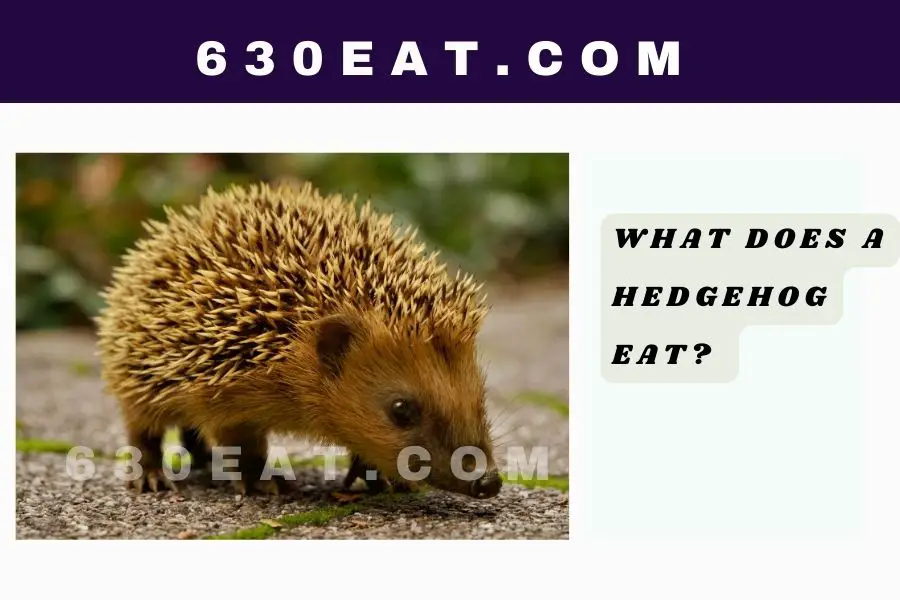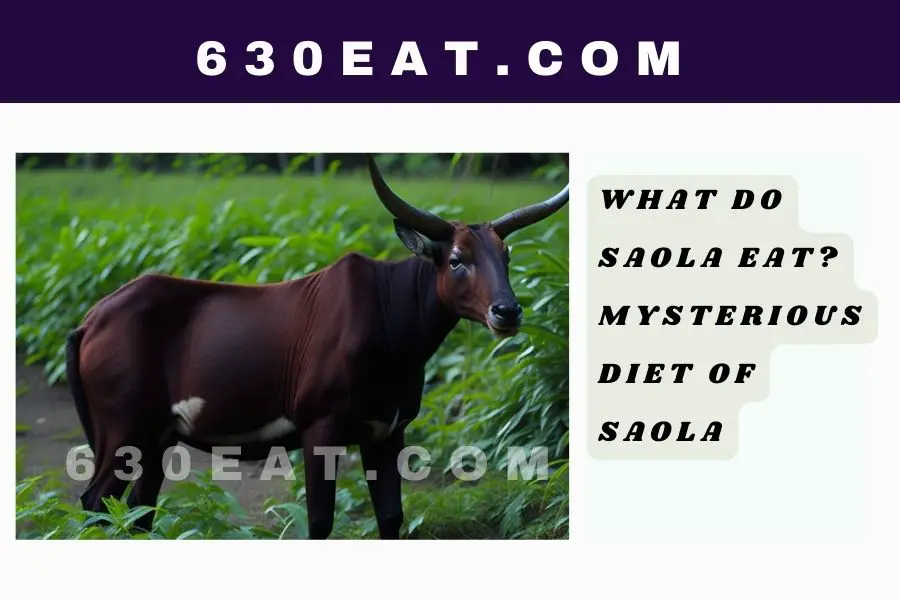Hedgehogs are some of the cutest and unique animals you can find in nature. But despite your love for these prickly little critters, have you ever stopped to ask yourself what they eat? After all, you can’t feed a hedgehog just anything and expect them to thrive.
Today, we’re going to take a closer look at the dietary needs of these creatures, so you can ensure that your pet hedgehog is getting everything they need to stay healthy. We’ll cover what hedgehogs eat in the wild, as well as go over some tips and considerations that will help you put together an ideal diet for your hedgehog companion. So let’s get started.
Hedgehog’s Natural Diet
What does hedgehogs normally eat? Wild hedgehogs are omnivores who feed on a variety of natural foods including mainly invertebrates and small vertebrates such as mice, frogs, and lizards. Moreover, they also feed on various plant matter like grasses, fruits, and nuts as well as fungi and even bird eggs.
On a regular basis these little critters will feast on a variety of insects such as beetles, caterpillars, earthworms, slugs, snails etc. In addition to that they can also consume slugs and snails. All in all roughly 75% of a hedgehog’s diet is composed of insects with the rest being made up from other food sources listed above.
So if you were to keep one of these little creatures as a pet an ideal diet for them would ideally be composed of cat kibble with additional protein being provided by regular servings of wet cat food supplemented with some natural insect sources such as mealworms or crickets. Additionally, it’s recommended to add some hedgehog safe vegetables to their diets too for extra nutrition and stimulation.
What Do Pet Hedgehogs Eat?
As someone who is curious about what hedgehogs eat, you should be aware that pet hedgehogs have different nutritional needs than their wild counterparts. Hedgehogs should be fed a main diet of high-quality cat or hedgehog kibble containing 30% protein and less than 20% fat. Additionally, insects such as crickets, silkworms, and mealworms should be fed to pet hedgehogs 3-4 times a week.
Supplemental foods such as lean meats, boiled or scrambled eggs, some fruit and veg, and baby food can also be offered in small amounts two to three times a week. It is important to remember that these treats should only make up 10-15% of their total diet to prevent overfeeding and obesity.
Common fruits for hedgehogs include banana, kiwi, melon, nectarine, papaya, pear and strawberries. Vegetables such as green beans and carrots with some squash are also suitable for them to eat.
Lastly, make sure that all food is served in a shallow bowl since hedgehogs prefer to forage on the ground.
Can Hedgehogs Eat Vegetables & Fruits?
Yes, hedgehogs can eat a wide variety of fruits and vegetables. Fruits such as apples, bananas, berries, and melons are all suitable for hedgehogs to consume. When it comes to vegetables, broccoli, cucumber, lettuce, leafy greens, asparagus, pumpkin, bell peppers and carrots are all suitable foods. However, it is important to note that hedgehogs mainly eat insects and that fruits and vegetables should only be offered occasionally.
Do Hedgehogs Need Milk in Their Diets?
No, hedgehogs are lactose intolerant and should not consume cow’s milk. Though it might seem natural or even cute to give a hedgehog a sip of milk, doing so can cause fatal diarrhea due to the animal’s inability to digest lactose. This applies to all milk substitutes, such as nut milks, as well.
It is important to note that feeding certain foods to your hedgehog can make them sick and possibly even kill them if they are consumed in high amounts—so it is essential to research hedgehog diets carefully before providing any food for your pet.
The exact makeup of a pet hedgehog’s regular diet will depend upon their individual needs and preferences, but should generally consist of a variety of high-quality dry cat food, fresh vegetables and occasional insects (such as mealworms).
What Foods Shouldn’t Hedgehogs Eat?
It’s important to know what foods your pet hedgehog should avoid ensuring they stay healthy and active. While hedgehogs are omnivorous, there are several foods they should steer clear of.
Hedgehogs are lactose intolerant and should not be fed dairy products, as it can cause digestive problems. Meat that is raw or undercooked can also lead to gastrointestinal tract issues for the hedgehog, as can a high-fat diet. Anything that has been treated with pesticides should be avoided.
Foods like tomatoes, pineapple, nuts, seeds, and raw meat are all offlimits for hedgehogs. While fruit and vegetables make up a small portion of the hedgehog’s diet in the wild, it should not be given as food for pet hedgehogs or frequently offered treats. Too much sugar or acidic foods in their diet can also cause digestive issues for them.
By steering clear of potentially problematic foods like those listed above, you can help keep your pet hedgehog safe and healthy!
8 Interesting Facts About Hedgehog
As an animal expert, I have studied hedgehogs for many years and discovered some interesting facts about their diet that could surprise you. Here are 8 interesting facts about what a hedgehog actually eats:
- Hedgehogs are nocturnal, so they hunt and search for food during the night.
- In the wild, a hedgehog’s main food sources include worms, insects, fruits and small animals. This could include beetles, caterpillars, earthworms, slugs, birds eggs and other bugs and insects.
- Hedgehogs are also able to eat meat if available in nature and can include frogs, mice or small lizards as part of their diet.
- Wild hedgehogs also consume plant material such as fruits and mushrooms as well as nuts when they can find them in nature.
- Domestic hedgehogs should always be provided with a commercial dry cat kibble as this contains all the necessary vitamins and minerals needed to keep them healthy and thriving.
- While cats are lactose intolerant, some domestic hedgehogs can tolerate yogurt as a treat if offered in moderation (not more than once or twice a week).
- Hedgehogs can hibernate if temperatures drop below 40°F (4°C), which is why they need extra food during the autumn months to prepare them for the cold winter season ahead of them.
- Hedgehogs are found in Europe, Asia and Africa – though there are no native animals living in Australasia or North America – so their diet will vary according to where they live in the world as some regions may have different insect populations than others or different types of plants growing in the wild.
FAQs
I often get asked certain questions about hedgehogs and the food that they eat, so here’s a list of some of the most common ones:
What should I feed my pet hedgehog?
The best way to ensure that your pet hedgehog is getting the nutrients it needs is to provide a high-quality kibble specifically designed for hedgehogs. The kibble should contain a blend of proteins, carbohydrates, fats and fiber, along with vitamins and minerals; according to experts, a good diet also contains 30% protein and less than 20% fat. You can also supplement their diet with occasional treats such as cooked eggs or vegetables.
How much should I be feeding my hedgehog?
Hedgehogs can eat up to 33% of their body weight daily in food. But keep in mind that it is still best to feed them small amounts throughout the day since too much food can cause health problems.
What animals do hedgehogs like to eat?
Hedgehogs are omnivorous animals, so they will happily chow down on both insects and plants and fruits. In the wild they will usually stick to worms and bugs such as beetles, slugs and spiders; while pet hedgehogs may enjoy fruits such as strawberry or banana – just make sure never to give them anything from avocado or citrus trees.
Conclusion
Hedgehogs have complex dietary needs, and it’s essential to understand what they eat, so you can provide the best nutrition for your pet or wild hedgehogs. In the wild, their diet consists mainly of invertebrates such as insects and worms, and they also eat plant matter, especially in the winter to provide energy.
In captivity, hedgehogs can be fed a variety of foods, including commercial hedgehog food, cat food, and a variety of fresh produce. To ensure your hedgehog is getting all the nutrients they need, make sure to consult with an animal nutrition expert before you start feeding them.




